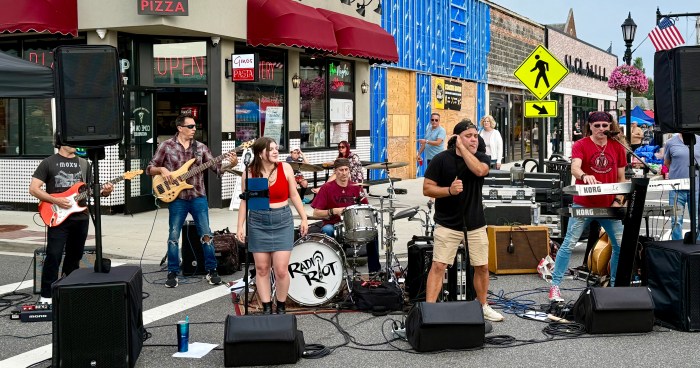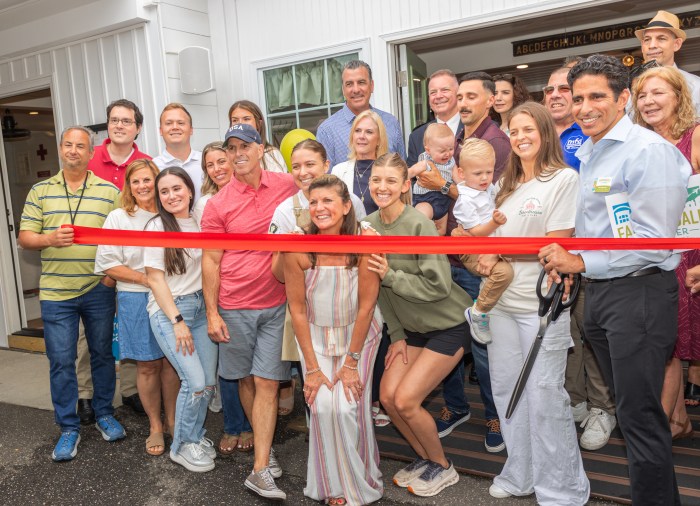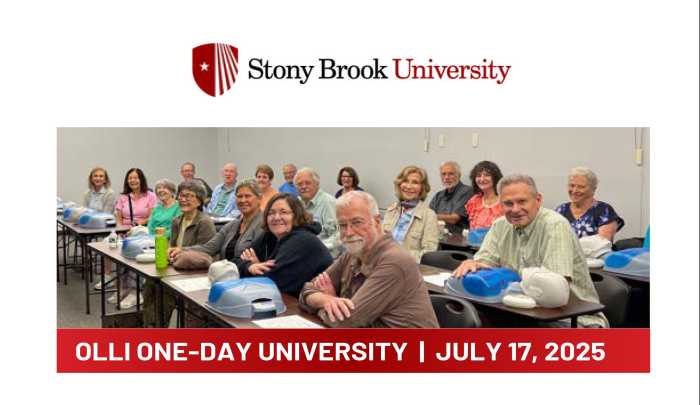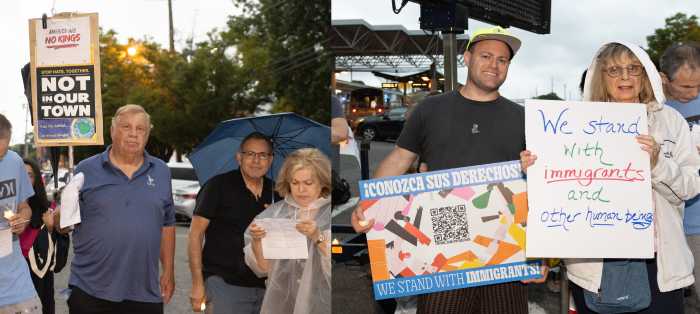Disabled, Elected Officials Call on MTA to Hear Alternatives
Dozens of disabled people arrived at Nassau University Medical Center in vans, wheelchair accessible buses and in Able-Ride vehicles, the subject of the very meeting they were there to attend. Their attorneys, advocates and elected officials came in cars; they don’t need handicapped vehicles to get around.
Nassau County Legislator Judy Jacobs organized the hearing, along with legislators Kevan Abrahams, Judi Bosworth, David Denenberg and Denise Ford at NUMC on Wednesday, May 19, giving disabled residents of Nassau County a venue to vent their frustrations and offer alternatives to cutting the MTA’s Able-Ride service.
“You cannot be without service, we cannot have you without service,” Jacobs said to the audience in the crowded auditorium. “The day we’re not motivated by compassion, we should pack up and go home.”
In March, the MTA announced they would be cutting Able-Ride services, limiting rides to those required by the Americans With Disabilities Act. With the cuts, disabled residents would use a “feeder” service that would bring them to a fixed-route bus line. The pickup point must be within three-quarters of a mile of said bus line.
Currently Able-Ride serves Nassau County residents, regardless of distance to a fixed-route bus line and provides door-to-door rides throughout Nassau County, more than what is required by the ADA.
According to Thomas Charles, vice president of the MTA’s paratransit division, residents in certain areas of Bayville, Syosset, Westbury, Hicksville, Old Bethpage, Plainview, Glen Cove and Oyster Bay will no longer see services from Able-Ride because they are outside the ADA-required area.
In April, several disability advocacy groups announced they were suing the MTA over the cuts. After one short, temporary restraining order against the MTA ran out, the judge hearing the case in the U.S. District Court in Central Islip issued a 30-day restraining order, asking the MTA to wait until May 27 to institute changes. The MTA had originally planned to cut Able-Ride services starting April 12.
“The goal of this hearing is not to point fingers, it’s to find a solution,” Jacobs said. Yet, upset Able-Ride users couldn’t help but place blame where they felt it was due.
“We want to be productive men and women of society and not be a burden,” said Eric, a wheelchair-bound man. “If MTA board members had to use Able-Ride, wouldn’t they want to find solutions?”
The MTA held an informational meeting on April 22, explaining their cuts to the program, saying they had to make cuts in order to balance their budget, as required by New York State.
The Able-Ride cuts will result in a savings of $1.2 million, out of a total Able-Ride budget of $17 million, Charles said at the April meeting.
“This was a painful decision but allows us to maintain compliance with ADA regulations and achieve the legislative mandate of a balanced budget,” Charles said at that meeting. “With an $800 million deficit, the MTA is struggling.”
The MTA “has turned over every stone, we looked at everything,” he said. “We just don’t see a funding stream that will get us out of this.”
But many present at last Wednesday’s meeting said they have alternative methods to raise revenue and save costs, all without cutting the Able-Ride service to those who desperately need it.
Speakers at the meeting suggested putting advertisements on Able-Ride buses to raise revenue and contracting with less-expensive private taxi companies to save money.
“Using taxis for ambulatory individuals can save far more than the $1.2 million they’re saving by cutting Able-Ride,” said Seth Stein, an attorney for plaintiffs in the suit.
Jim Weissman, an attorney who said he was involved in a previous lawsuit against the MTA, said putting ads on buses to raise revenue was suggested years ago and although the MTA said it was a good idea, they never moved forward with it.
Jerry Mikorenda, director of communications for MTA Long Island Bus, said the MTA is willing to hear suggestions.
“In fact, we’ve requested to Judy Jacobs to submit suggestions,” Mikorenda said. “It’s an issue of timing. The MTA has to have a balanced budget by July, and although they’re willing to listen to suggestions, they may not be able to implement something by then.”
“This is a very small window and the longer we go without making these changes the less time we have,” he said.
Jacobs told Anton Community Newspapers that she submitted to Mikorenda testimonies and the transcript from the meeting on Thursday, the day after the meeting.
“There’s enough blame to go around with this thing, there needs to be solutions,” she said. “Signing up taxis that expressed interest in doing business is the kind of thing that could be done right away.”
One of the issues in this whole debacle, users and advocates say, is the lack of communication from the MTA. Able-Ride users want to know whether they will still be eligible for rides once the cuts are instituted. When they ask, they are told that the MTA doesn’t have that information available, that users will have to call Able-Ride, after the cuts. Only then will they be told whether the addresses they are going to and from are eligible.
“The issue is it’s the kind of software that once you turn it on, you have to use it, we’re not going to turn the software on until the programming is happening,” Mikorenda said. “It’s not actively running the system, so they can’t look at it hypothetically.”
Mikorenda said non-ADA trips accounted for 9 percent of the trips last year. That would mean about 9 percent of trips will no longer be eligible under the Able-Ride program once those cuts are made.
He also said that once the cuts are instituted, the MTA would honor those appointments already scheduled.
“There will be a little bit of cushion,” Mikorenda told Anton Community Newspapers. “Reservations that are already in the system will be honored.”
What Able-Ride users fear is what comes once those cuts go into effect.
Angela Davis, disabled in a wheelchair and a member of the Nassau County Commission on Human Rights, explained what the cuts would do to those who rely on Able-Ride.
“Being disabled is not easy; you’re told at an early age what you can’t do. When ADA became law I thought we were finally liberated,” she said. Able-Ride allowed herself and others “the right to have a job, go to school, shop, visit a hospital and have a social life.”
“The disabled of Nassau County will lose their right to live their lives all because 20 years ago, ADA didn’t go far enough,” Davis said. “Who would have thought a law to liberate us would imprison us in our homes?”

































